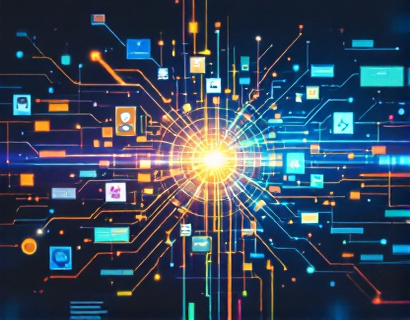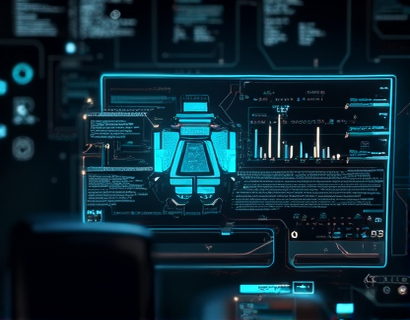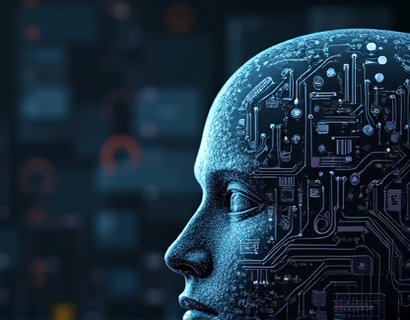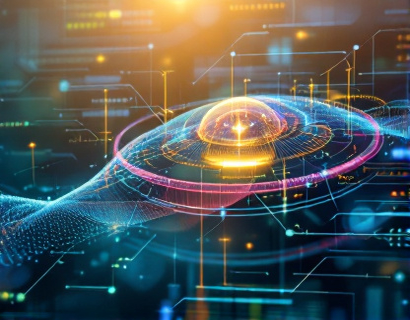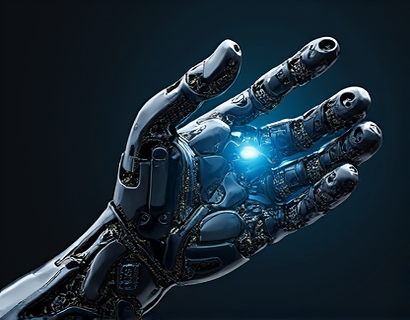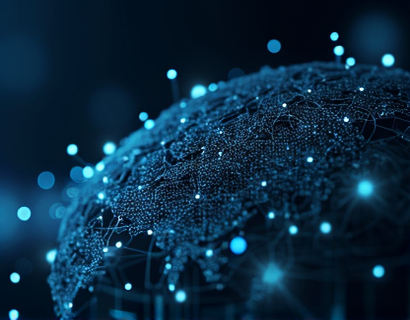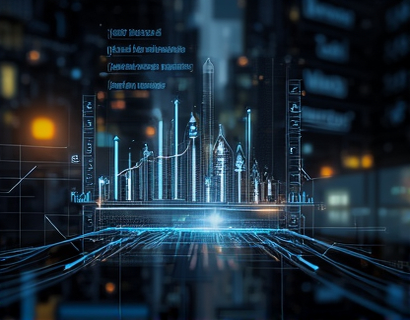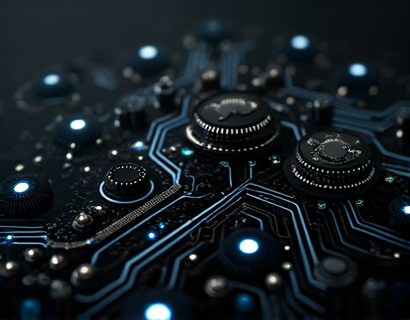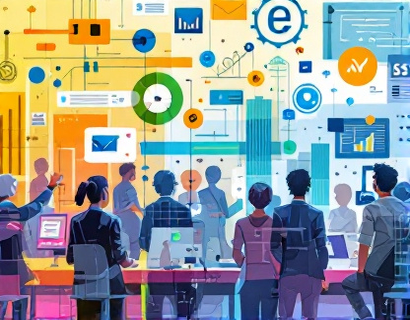Decentralized Productivity: Harnessing AI and Crypto for Enhanced Digital Solutions
The integration of artificial intelligence (AI) and cryptocurrency into digital productivity tools marks a significant shift in how we approach and manage tasks in the digital realm. This evolution is not just about adopting new technologies but about rethinking the fundamental structures that underpin our digital interactions. Decentralized productivity, powered by AI and crypto, promises to revolutionize efficiency, simplify digital tasks, and enhance user experience. This article delves into the intricacies of this revolution, exploring how these technologies converge to create a more robust, secure, and user-friendly digital environment.
Understanding Decentralized Productivity
Decentralized productivity refers to the use of decentralized technologies to enhance and streamline digital workflows. Unlike traditional centralized systems where data and control are managed by a single entity, decentralized systems distribute these functions across a network of nodes. This distribution not only enhances security and transparency but also reduces the risk of single points of failure. In the context of productivity tools, decentralization means that applications and services operate on a blockchain or a decentralized network, ensuring that data is tamper-proof and accessible to all authorized users.
The benefits of decentralized productivity are manifold. First, it promotes greater autonomy and control for users, as they have direct access to their data and can manage it without relying on intermediaries. Second, it enhances security through cryptographic techniques that protect data integrity and privacy. Third, it fosters a more collaborative environment, as decentralized networks facilitate seamless sharing and collaboration among users without the need for centralized approval.
AI in Decentralized Productivity
Artificial intelligence plays a crucial role in enhancing decentralized productivity. AI algorithms can process vast amounts of data quickly and accurately, providing insights and automating tasks that would otherwise be time-consuming and error-prone. In a decentralized context, AI can be deployed to manage and optimize network operations, ensuring that resources are used efficiently and that the system remains robust and scalable.
One of the key applications of AI in decentralized productivity is in the realm of smart contracts. Smart contracts are self-executing contracts with the terms of the agreement directly written into code. AI can enhance smart contracts by providing predictive analytics and automated decision-making capabilities. For instance, AI can analyze historical data to predict future trends and adjust smart contract parameters accordingly, ensuring that agreements are executed optimally and efficiently.
Enhanced Efficiency Through AI and Crypto Integration
The combination of AI and cryptocurrency creates a powerful synergy that significantly boosts efficiency in digital productivity. Cryptocurrencies, with their inherent properties of decentralization and transparency, provide a secure and trustless environment for transactions and data exchange. AI, with its ability to analyze and optimize processes, ensures that these transactions and interactions are not only secure but also highly efficient.
For example, in project management tools, AI can automate task assignments based on real-time availability and skill sets of team members, while blockchain ensures that all tasks and progress updates are recorded transparently and immutably. This dual approach reduces the need for manual oversight and coordination, allowing teams to focus on core tasks and deliver results more quickly.
Another area where AI and crypto integration enhance efficiency is in supply chain management. By using blockchain to track the movement of goods and AI to predict demand and optimize inventory levels, businesses can reduce delays, minimize costs, and improve overall supply chain resilience. This integration ensures that all stakeholders have real-time access to accurate and up-to-date information, facilitating better decision-making and operational efficiency.
Simplified Digital Tasks Through Decentralized Solutions
Decentralized productivity tools simplify digital tasks by removing the need for intermediaries and central authorities. This simplification not only reduces complexity but also lowers costs and increases accessibility. Users can directly interact with services and applications without the overhead of middlemen, leading to a more streamlined and user-friendly experience.
Take digital identity management as an example. Traditional systems often require users to create multiple accounts and manage various credentials, leading to a cumbersome and insecure experience. A decentralized identity solution, powered by AI and blockchain, allows users to create a single, secure identity that can be verified and managed across different platforms. AI can enhance this process by providing biometric authentication and behavioral analysis to ensure that only authorized users access the identity data.
File storage and sharing are another area where decentralized solutions simplify digital tasks. Centralized cloud storage services can be prone to outages, data breaches, and privacy concerns. Decentralized storage solutions, such as IPFS (InterPlanetary File System), use blockchain to distribute files across a network of nodes, ensuring that data is always available and secure. AI can optimize file storage and retrieval by analyzing usage patterns and predicting storage needs, further enhancing the user experience.
User Experience and Technological Integration
The user experience in decentralized productivity is significantly enhanced through the seamless integration of AI and crypto technologies. These technologies work together to create intuitive, responsive, and secure applications that cater to the needs of modern users. The key to achieving this lies in designing user interfaces and experiences that are both accessible and powerful.
For instance, decentralized applications (dApps) can leverage AI to provide personalized user interfaces that adapt to individual preferences and behaviors. AI-driven chatbots and virtual assistants can guide users through complex tasks, offering real-time support and recommendations. At the same time, blockchain ensures that all interactions and data are secure and transparent, building trust and confidence in the platform.
Moreover, the integration of AI and crypto enables the development of decentralized marketplaces where users can buy, sell, and exchange digital assets and services directly. These marketplaces can use AI to match supply and demand, optimize pricing, and ensure fair transactions. The use of smart contracts further guarantees that agreements are executed as per the terms agreed upon, reducing the risk of fraud and disputes.
Challenges and Future Prospects
Despite the numerous advantages, the adoption of decentralized productivity tools faces several challenges. One of the primary concerns is the technical complexity associated with blockchain and AI technologies. Many users and businesses may find it difficult to navigate and implement these solutions without proper guidance and support. Education and user-friendly interfaces are crucial to overcoming this barrier.
Another challenge is the scalability of decentralized systems. While blockchain technology has made significant strides, it still faces limitations in terms of transaction speed and cost. Advances in blockchain scalability solutions, such as layer 2 protocols and sharding, are essential to making decentralized productivity widely accessible.
Looking ahead, the future of decentralized productivity is promising. As AI continues to evolve, we can expect more sophisticated and intuitive tools that further enhance the capabilities of decentralized networks. The convergence of AI, crypto, and other emerging technologies like the Internet of Things (IoT) will lead to even more innovative and integrated solutions. The potential for decentralized productivity to transform industries and empower users is immense, paving the way for a more decentralized, secure, and efficient digital world.



